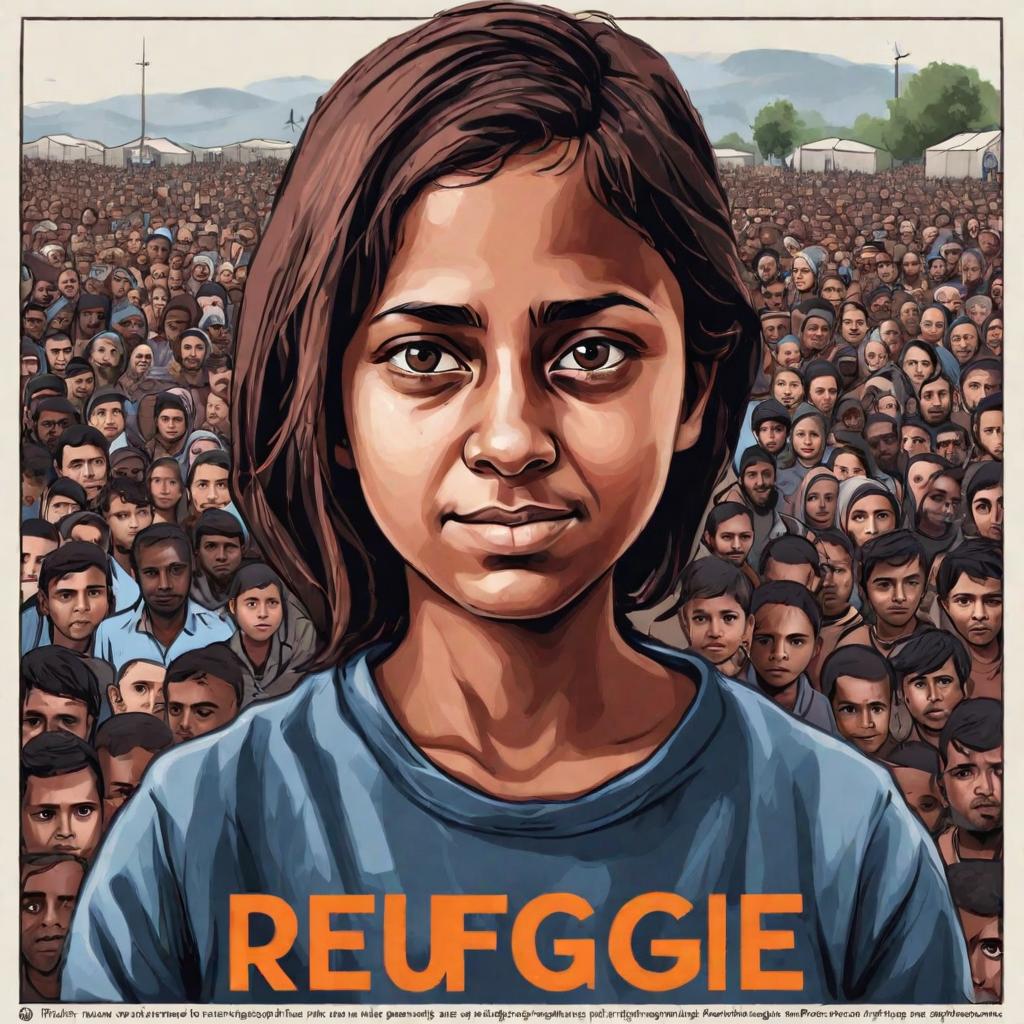Synopsis
The article discusses the global issue of forced displacement and refugee rights where millions of people are forced to flee their homes due to conflict, violence, persecution, or serious disruptions to public order. According to the United Nations High Commissioner for Refugees (UNHCR), by the end of 2023, around 117.3 million people worldwide had been forcibly displaced, with 37.6 million of them being refugees. The ongoing conflicts, such as the Israel-Hamas war and the Ukraine-Russia war, are expected to increase the number of refugees.

Article Explanation
The global refugee crisis is a pressing issue, with an unprecedented scale of forced displacement worldwide. By the end of 2023, around 117.3 million people were forcibly displaced, including 37.6 million refugees. The situation is worsening due to ongoing conflicts like the Israel-Hamas war and the Ukraine-Russia war, as well as renewed threats to the Rohingya population in Myanmar. India has historically been a destination for refugees from various countries, hosting over 200,000 refugees from diverse backgrounds. As of January 31, 2022, there were 46,000 registered refugees and asylum-seekers in India, with nearly half (46%) of this population being women and girls.
The article highlights the gendered impact of displacement, as women and girls are often the primary caregivers for their families, responsible for children, the elderly, and the sick. This heavy burden leaves them particularly vulnerable to physical, emotional, and psychological stress. Women and girls are often the last to flee during times of conflict, meaning they are more exposed to violence and exploitation. When they do flee, they may end up in refugee camps where conditions are harsh and traditional social support systems have broken down. The gendered nature of their responsibilities, combined with the loss of their homes and communities, severely impacts their mental health.

Mental health challenges among displaced women are common, with conditions such as post-traumatic stress disorder (PTSD), anxiety, and depression being common among refugee women. Social and gender inequalities in patriarchal societies often dismiss the experiences of women, leading to “epistemic injustice” where their suffering and needs are overlooked. This marginalization makes displaced women with psychological vulnerabilities not only stigmatized but also isolated, making it even harder for them to access necessary mental health services.
India’s legal framework, the Rights of Persons with Disabilities Act, 2016 (RPWDA), provides a range of rights to people with disabilities, including the right to healthcare. However, the term “psychosocial disability” is not widely used in Indian law, instead using the term “mental illness.”
A significant issue highlighted in the article is that refugee women with psychosocial disabilities are largely excluded from the protections offered by the RPWDA. This exclusion stems from the fact that they are not Indian nationals, and many of the rights and services guaranteed to Indian citizens do not apply to them. Refugee women are often left to rely on overcrowded government hospitals for healthcare or seek help from unregulated non-governmental organizations (NGOs), which might not have the resources or expertise to address their needs adequately.
The article calls for policy reform in India, calling for the creation of a uniform, codified legal framework that would integrate refugees with disabilities into India’s policies and programs. This framework should align with India’s international commitments, such as the Sustainable Development Goals (SDGs), which emphasize empowering vulnerable populations, including refugees and persons with disabilities.
In conclusion, the article sheds light on the severe challenges faced by displaced women, particularly those with mental health issues, and the urgent need for better legal protections and social services. The lack of a comprehensive framework in India to address the needs of refugee women with psychosocial disabilities leaves them vulnerable and unable to access the rights and services they are entitled to under international law. The article calls for immediate action to fill these gaps and ensure that refugee women receive the support they need to live with dignity and security.
Join our telegram channel for regular updates of The Hindu Epaper Editorial Explanation-https://t.me/Thehindueditorialexplanation
The Hindu Epaper Editorial Explanation given by Hello Student is only a supplementary reading to the original article to make things easier for the students.
In conclusion, preparing for exams in India can be a daunting task, but with the right strategies and resources, success is within reach. Remember, consistent study habits, effective time management, and a positive mindset are key to overcoming any academic challenge. Utilize the tips and techniques shared in this post to enhance your preparation and boost your confidence. Stay focused, stay motivated, and don’t forget to take care of your well-being. With dedication and perseverance, you can achieve your academic goals and pave the way for a bright future. Good luck!
The Editorial Page of The Hindu is an essential reading for all the students aspiring for UPSC, SSC, PCS, Judiciary etc or any other competitive government exams.
This may also be useful for exams like CUET UG and CUET PG, GATE, GMAT, GRE AND CAT
